Lessons from the USA about patriotic beat-ups

As Australia approaches that time in January again, we see the unedifying picture of Peter Dutton’s team driving his post-referendum Base into a flag-waving orgy of aggrieved patriotism. He has decided to conduct an attack on Woolworths over a commercial decision that Australia Day merchandise was not popular. Dutton is whipping up the contingent which believes that a No victory meant First People must become invisible, hoping a bigot vote will be enough to win the next election.
Similarly in the USA, compulsory patriotism is part of the Atlas Network’s plan to control the future of America through directing the next administration.
One of the flagship junktanks of the Atlas Network is the Heritage Foundation. It is an influence machine for the radical Right in America. It was co-founded by Paul Weyrich in 1971. The religious right-wing political space lost momentum when fighting school desegregation became untenable: racism could no longer be the (overt) driving force of Evangelical Christians’ political mission. Weyrich was the figure who steered a selected group of right-wing men in the late 70s to select abortion instead of prayer in school to be the issue to galvanise the Christian Right into a political force. The Moral Majority was the result. The Trump Republican Party is its offspring.
Heritage has helped “staff and set the agenda for every Republican administration since Ronald Reagan.” And in the new project, it has brought together what it describes as a “massive coalition of conservative organisations” from both within the Atlas Network and the Christian Nationalist architectures of influence.
Heritage is now led by Dr Kevin Roberts, a Rad Trad Catholic – the sort that despises the current Pope as a socialist and infiltrator. He came to Heritage from the Atlas-partner Texas Public Policy Foundation whose “donors are a Who’s Who of Texas polluters, giant utilities and big insurance companies.” Roberts has been celebrated as the man who would turn Heritage away from adherence solely to ultra-free market goals regardless of cost, towards the National Conservative (Nat Con) project of returning values to the Republican project. These values are Christian Nationalist – frightening for anyone who is not a straight, white, “Christian” man.
Heritage’s Project 2025 or “roadmap” for the first months of the next Republican President’s action has been described thus: “At the heart of this particular document is the installation of a machinery of absolute executive and capitalist power which systematically dismantles democracy and any government protections of the people and the environment all under the guise of reclaiming religious virtue from amoral Marxist wokeism.”
The roadmap is not just a document. It plans to fire 50,000 federal public servants. It has begun recruiting 20,000 people for the new government. It intends to train these recruits in the Nat Con goals of their mission. Applicants are required to give access to their social media and fill out a questionnaire to guarantee their ideological purity. The eliminatory questions (some of which are traps) include, “We should be proud of our American heritage and history, even as we acknowledge our flaws” as a compulsory point. Apparently patriotism is mandatory for employment in this worldview.
This is, however, amongst the less disturbing elements of Roberts’s expression of the project. Roberts’ enemy in his preface, “A promise to America,” is “The Great Awokening,” depicting social justice, secularism and empirical evidence-based policy as a blasphemous trap. He is determined to rescue “the very moral foundations of our society,” imperilled by centralised government. The words “woke” and “elites” throb like drumbeats throughout his preface, signalling the populist distraction that his plutocrat donors demand – to steer focus away from them.
His four goals are to restore the “family as the centrepiece of American life and protect our children”; to dismantle the administrative state; to defend borders; to secure “our God-given individual rights to live freely.”
Placing the family at the core has various ramifications. It is partly a battle cry to eliminate Queerness and return women to home and breeding, submissive to husband. It is partly racist. It is inherently connected to the dismantling of all safety nets, replaced by family and community charity. It is also connected to the radical right goal to dismantle the public education system, with the preliminary step of allowing a minority of radical parents to control what all students are allowed to be taught in schools.
Roberts insists that Project 2025 drives “policymakers to elevate family authority, formation, and cohesion as their top priority and even use government power, including through the tax code, to restore the American family.” He demands all words related to diversity or inclusiveness must be deleted from every federal document. Anyone producing or distributing material that acknowledges Queer existence – which he depicts as pornography – should be imprisoned and “Educators and public librarians who purvey it should be classed as registered sex offenders. And telecommunications and technology firms that facilitate its spread should be shuttered.”
He declares that the Dobbs decision removing protections for reproductive rights is “just the beginning.” The next President must make removing reproductive rights a national commitment. The Mandate also promotes greater pregnancy surveillance.
Roberts portrays environmental protection including climate action as “extremism” and “anti human.” It is “not a political cause, but a pseudo-religion meant to baptize liberals’ ruthless pursuit of absolute power in the holy water of environmental virtue.”
Australians watching our government’s subservience to the American war machine should take note: “The next conservative President must end the Left’s social experimentation with the military, restore warfighting as its sole mission, and set defeating the threat of the Chinese Communist Party as its highest priority” as well as promoting the building of new nuclear weapons.
The current US government he depicts as the monolithic left, “socialism—Communism, Marxism, progressivism, Fascism, whatever name it chooses,” which must be defeated to return whatever he defines as “liberty” to the American people.
The Roadmap is written by hundreds of “conservative” thinkers, but far more concerning is how many of the contributors were senior in Trump’s last administration. Whether it is Trump or some other candidate, these activists intend rapid, concerted action to destroy the administrative state, with the lavish use of executive action from the White House to sideline any congressional constraints.
Heritage has released such a Mandate for the last 40 years but it crowed with delight about the way that Trump embraced their guide when he took power, implementing 2/3 of their recommendations in his first year. Australians could see this as an echo of the (Atlas-partner) Institute of Public Affair’s (IPA) notorious “wishlist” that did so much to shape Tony Abbott’s government in contravention of its election promises.
With the election of Javier Milei in Argentina, Atlas has won their man a pivotal role in that nation’s future, as Dr Jeremy Walker indicated. He plans to sell off Argentina’s assets to predatory global capitalists, and Argentinians are already feeling the pain of price hikes. George Monbiot has recently acknowledged the Tufton St junktanks that have driven Britain into misery belong to the Atlas Network. At the same time, Australia’s prospective future leader appeared in pink hi-vis to pay obeisance to Gina Rinehart, primary funder of the IPA.
Little in Roberts’s preface to the Mandate will surprise Sky News Australia viewers. This kind of rhetoric is at the heart of the world Atlas aims to create: no restraints for fossil fuel but many restraints for the irritating (and immoral) masses.
Fostering aggrieved patriotism is a core right-wing gambit, and we should recognise it when Dutton applies his lighter to that fire in the next fortnight: it is part of a grim package.
Like what we do at The AIMN?
You’ll like it even more knowing that your donation will help us to keep up the good fight.
Chuck in a few bucks and see just how far it goes!
Your contribution to help with the running costs of this site will be gratefully accepted.
You can donate through PayPal or credit card via the button below, or donate via bank transfer: BSB: 062500; A/c no: 10495969











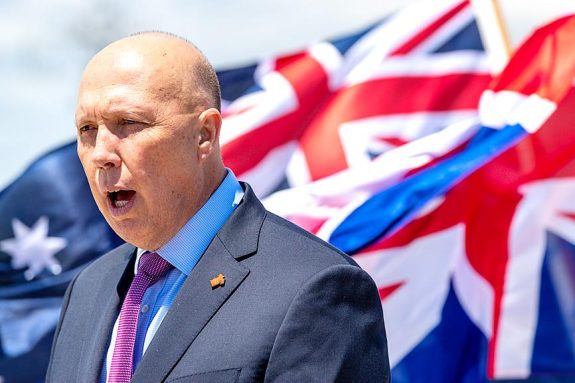

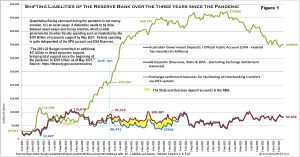
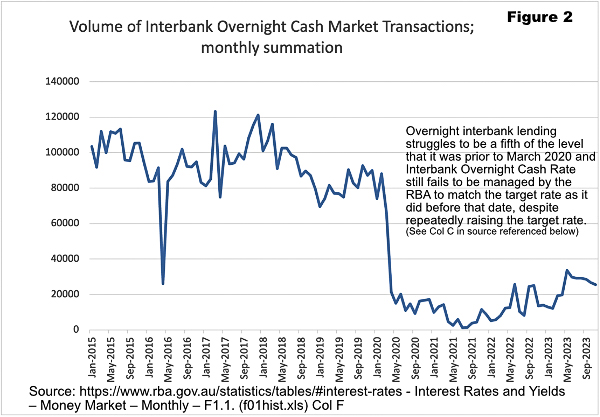
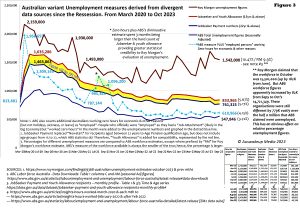
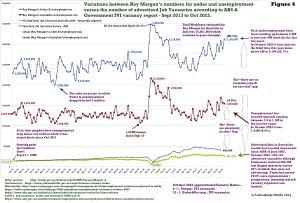

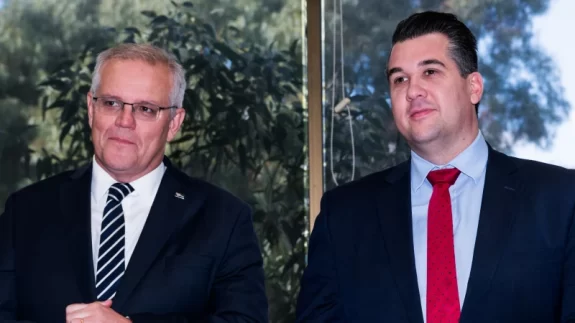
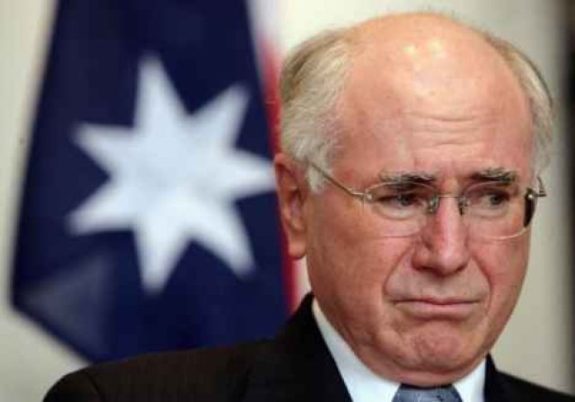
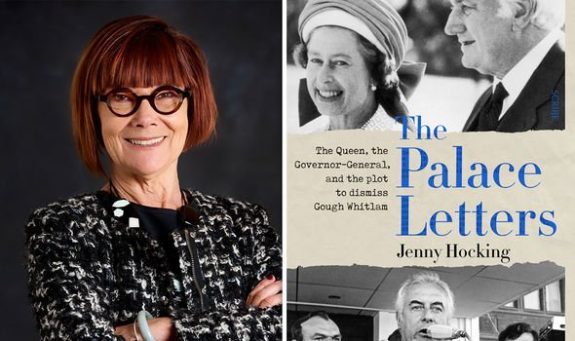
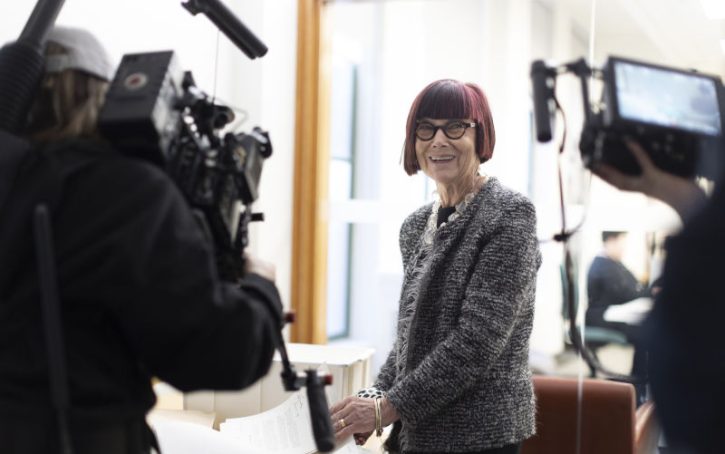

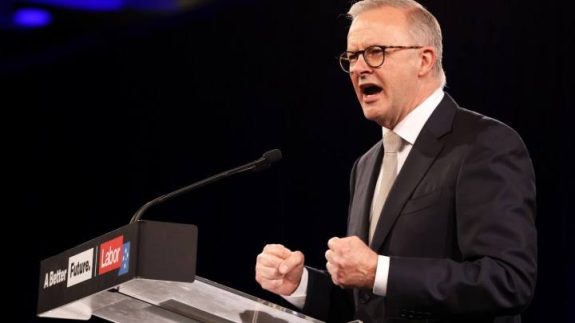
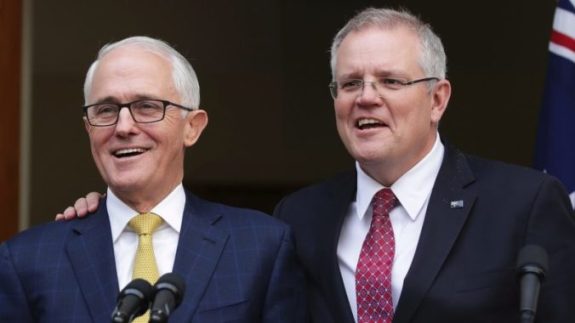
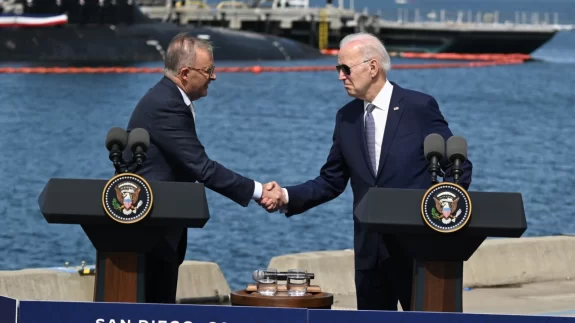
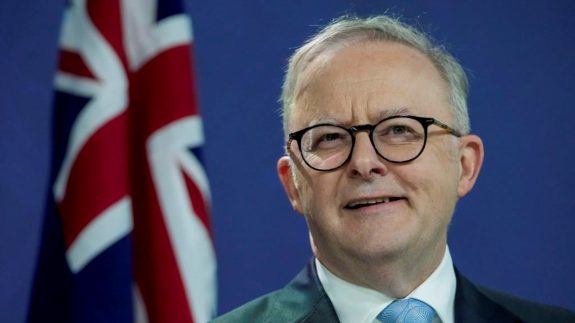



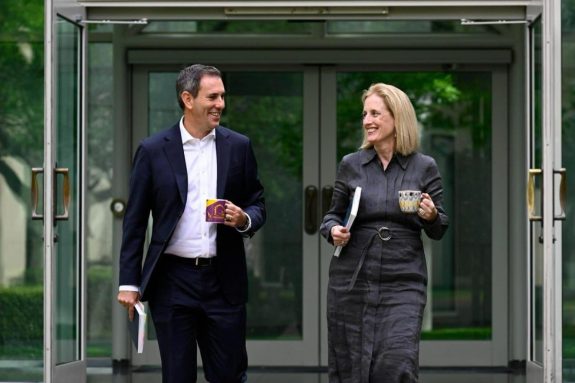



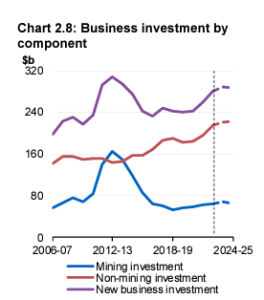 For a Labor government that is striving for an extended term in office, the investment multiplier offered by private sector investment is the crucial variable in our economic and community development. Chart 2.8 from MYEFO 2023 showed just why this is a transitional time for the Australian economy in the post-mineral boom era. New patterns of investment are required for changing times.
For a Labor government that is striving for an extended term in office, the investment multiplier offered by private sector investment is the crucial variable in our economic and community development. Chart 2.8 from MYEFO 2023 showed just why this is a transitional time for the Australian economy in the post-mineral boom era. New patterns of investment are required for changing times.